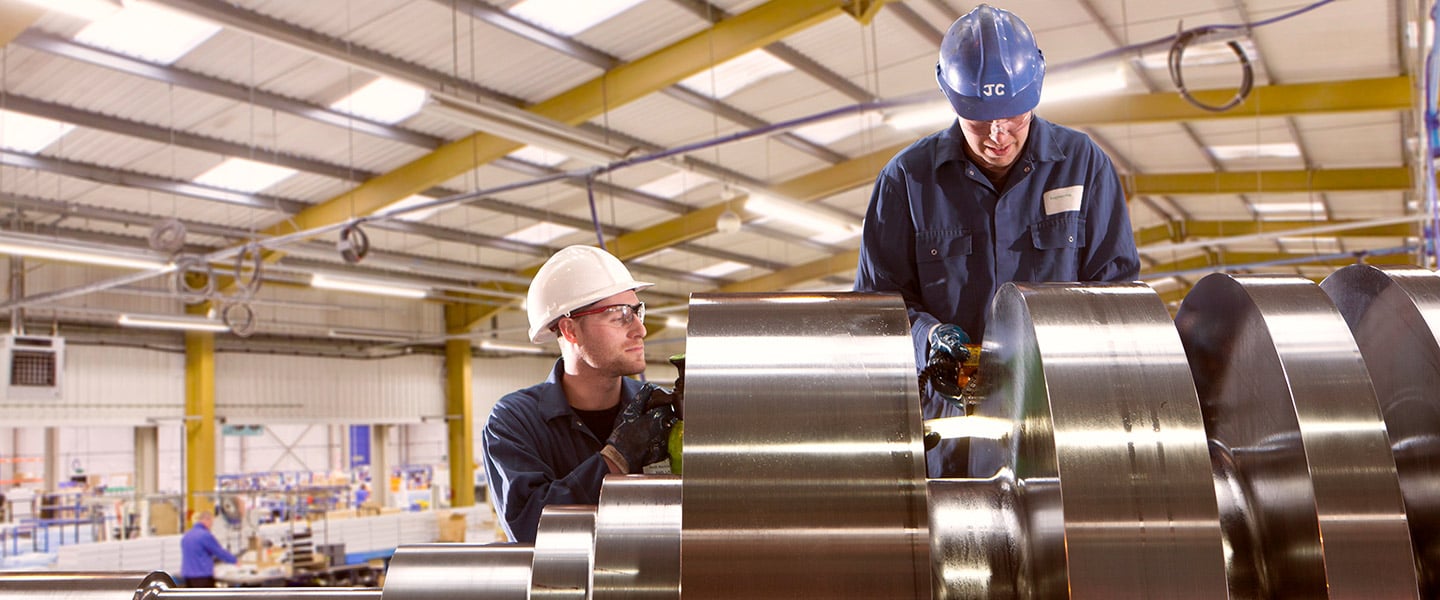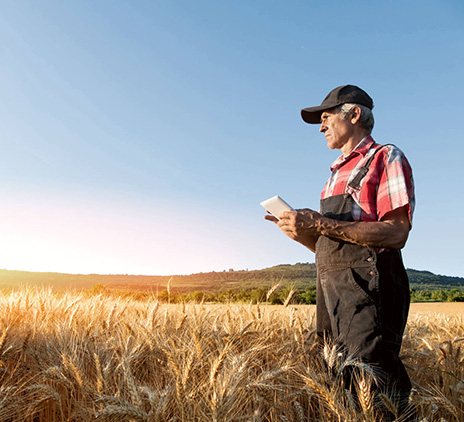-
Financial administration
An accurate financial administration provides you with the information you need to take the right decisions. The big advantage of a digital financial administration is that it provides insight into your most important financial processes at any time, whether this is the invoices, salary payments or bank changes.
-
Financial insight
You want to take the right decisions, based on trustworthy and clear management information. You want to have access to all your financial data, 24/7, in order to determine your position and be able to adjust where necessary.
-
Global compliance partnering
Outsourced compliance services comprises the total financial compliance of your business, in accounting, financial reporting, payroll, legal and various tax reporting obligations. We can make sure you don’t have to worry.

-
Business risk services
Minimize risk, maximize predictability, and execution Good insights help you look further ahead and adapt faster. Whether you require outsourced or co-procured internal audit services and expertise to address a specific technology, cyber or regulatory challenge, we provide a turnkey and reliable solution.
-
Corporate finance
Finding a suitable match at the most optimum terms. That, in a nutshell, aptly describes the objective of mergers and acquisitions. To most businesses mergers or acquisitions are not standard daily practice. It is, however, for the professionals at Grant Thornton! Seeking their services will add value instantly.
-
Cyber risk services
What should I be doing first if my data has been kidnapped? Have I taken the right precautions for protecting my data or am I putting too much effort into just one of the risks? And how do I quickly detect intruders on my network? Good questions! We help you to answer these questions.
-
Impact House
Building sustainability and social impact. That sounds good. But how do you go about it in the complex world of stakeholders, regulations and frameworks and changing demands from clients and society? How do you deal with important issues such as climate change and biodiversity loss?
-
Transaction services
What will the net proceeds be after the sale? How do I optimise the selling price of my business or the price of one of my business activities? How do I capitalise on synergies following an acquisition? Am I not offering too much? These are all good questions when you’re buying or selling a business. It’s a transaction that concerns significant amounts, impacts your future, and therefore must be executed properly. We provide a solid foundation for your decisions.
-
Valuation, investigation & dispute services
Do you require a fact finding investigation to help assess irregularities? Is it necessary to ascertain facts for litigation purposes?

-
Auditing of annual accounts
You are answerable to others, such as shareholders and other stakeholders, with regard to your financial affairs. Financial information must therefore be reliable. What is more, you want to know how far you are progressing towards achieving your goals and what risks may apply.
-
IFRS services
Financial reporting in accordance with IFRS is a complex matter. Nowadays, an increasing number of international companies are becoming aware of the rules. But how do you apply them in practice?
-
ISAE & SOC Reporting
Our ISAE & SOC Reporting services provide independent and objective reports on the design, implementation and operational effectiveness of controls at service organizations.
-
Pre-audit services
Pre-audit services is all about making the company’s entire financial administration ready for checking before the external accountant begins his/her audit of the annual accounts.
-
SOx law implementation
The SOx legislation dictates that management is structurally accountable for reporting on the internal control relevant to the financial statements.

-
International corporate tax
The Netherlands’ tax regime is highly dynamic. Rules and the administrative courts raise new challenges in fiscal considerations on a nearly daily basis, both nationally and internationally.
-
VAT advice
VAT is an exceptionally thorny issue, especially in major national and international activities. Filing cross-border returns, registering or making payments requires specialised knowledge. It is crucial to keep that knowledge up-to-date in order to respond to the dynamics of national and international legislation and regulation.
-
Customs
Importing/exporting goods to or from the European Union involves navigating complicated customs formalities. Failure to comply with these requirements usually results in delays. In addition, an excessively high rate of taxation or customs valuation for imports can cost you money.
-
HR services
Do your employees determine the success and growth of your organisation? And are you in need of specialists which you can ask your Human Resources (HR) related questions? Human Resources (HR) related questions? Our HR specialists will assist you in the areas of personnel and payroll administration, labour law and taxation relating to your personnel. We provide you with high-quality personnel and payroll administration, good HR guidance and the right (international) advice as standard. All this, of course, with a focus on the human dimension.
-
Innovation & grants
Anyone who runs their own business sets themselves apart from the rest. Anyone who dares stick their neck out distinguishes themselves even more. That can be rather lucrative.
-
Tax technology
Driven by tax technology, we help you with your (most important) tax risks. Identify and manage your risks and become in control!
-
Transfer pricing
The increased attention for transfer pricing places greater demands on the internal organisation and on reporting.
-
Sustainable tax
In this rapidly changing world, it is increasingly important to consider environmental impact (in accordance with ESG), instead of limiting considerations to financial incentives. Multinational companies should review and potentially reconsider their tax strategy due to the constantly evolving social standards
-
Pillar Two
On 1 January 2024 the European Union will introduce a new tax law named “Pillar Two”. These new regulations will be applicable to groups with a turnover of more than EUR 750 million.
-
Cryptocurrency and digital assets
In the past decade, the utilization of blockchain and its adoption of a distributed ledger have proven their capacity to revolutionize the financial sector, inspiring numerous initiatives from businesses and entrepreneurs.
-
Expand into new markets
Do you seek for opportunities in the global business arena? Whether you are about to open a new office in a foreign country or considering an international acquisition, you need certainty of making the right choices for your company. Global expansion isn’t always as simple as it sounds. The good thing is that we’re here to help!
-
Expanding your business in the Netherlands
International expansion is an important step. The Netherlands can be your gateway to Europe for doing business abroad. But why you should choose the Netherlands?
-
Global contacts
Wherever you choose to do business, you want access to people with the best ideas and critical thinking that will enable you to grow your business at home and abroad.
-
Corporate Law
From the general terms and conditions to the legal strategy, these matters need to be watertight. This provides assurance, and therefore peace of mind and room for growth. We will be pro-active and pragmatic in thinking along with you. We always like to look ahead and go the extra mile.
-
Employment Law
Small company or large multinational: in any company your people are of the utmost importance for your business. Employment brings with it many issues in many areas and often has legal consequences. For big strategic, but also for more everyday questions about employment law, our lawyers are ready to help you out. Also for questions about international employment law. Do you have your own HR department? We’ll gladly assist them. We deliver bespoke services and are there when you need us.
-
Specialist Areas
Besides our focus on corporate and employment law, we also advise entrepreneurs on a range of (specialist) legal issues. A corporate acquisition, your company administration, complex question in the field of healthcare issues: you have come to the right place.
-
Maritime sector
How can you continue to be a global leader? The Netherlands depends on innovation. It is our high-quality knowledge which leads the maritime sector to be of world class.

-
Growth in an international network
At Grant Thornton, you will benefit from the expertise and quality of colleagues around the world who will benefit your knowledge, advice and growth.
-
Varied customer portfolio
The customer package at Grant Thornton varies from (large) SME customers to (small) corporate customers. From local customers to customers from the international network of Grant Thornton International Ltd. All this diversity in customers can also be recognized in your customer package.
-
Culture
At Grant Thornton we combine a solid base with a flexible and results-driven mentality.

Businesses are allowed to self-certify the origin and to provide a single statement of origin for multiple shipments over the course of a year. REX registration is required to self-certify consignments exceeding EUR 6,000.
Background
The UK has left the EU Customs Union on 31 December 2020. The EU/UK trade deal (FTA) now regulates the movement of goods between the UK and EU. The EU/UK FTA provides for zero tariffs and zero quotas on all goods provided the rules of origin (RoO) are met. Such rules are necessary to ensure that the products benefiting from the FTA are either wholly obtained from or manufactured in the EU or the UK, or sufficiently worked or processed there (e.g. by setting a limit on the value of non-originating materials that can be used in order to benefit from the FTA). The FTA provides full cumulation (i.e. processing activities in the EU or UK also count towards origin, not just materials used). Full bilateral cumulation between the EU and the UK allows UK inputs and processing to be counted as EU input in EU products exported to the UK and vice versa. The EU/UK FTA does not provide for diagonal cumulation.
For a product to qualify for a zero tariff (if it is not already zero rated), it must meet the rules of origin that determine how much of its content must be derived from EU or UK processing or materials.
If you are buying or selling goods within the EU/UK free trade area, you will need to check whether your goods qualify for the preferential treatment and what the requirements are to prove the EU/UK origin of your goods.

How to claim preferential treatment
A claim for preferential or zero tariffs is made in the customs declaration. For UK importers, this is done via CHIEFS or CDS systems. In the Netherlands, the equivalent is Portbase.
Statement of Origin to qualify for preferential tariffs
A claim for preferential tariff treatment should be based on:
- an exporter’s statement; or
- the importer’s knowledge.
A statement on origin must contain details contained within the EU/UK FTA. It can be provided in any format, whether on the sales invoice or a similar commercial document.
It is allowed to self-certify the origin of goods
For imports of value less than EUR 6,000, an exporter may complete this statement himself. For goods above EUR 6,000, the EU exporter should be registered with the EU Registered Exporter scheme (REX) and include their REX number in the exporter statement. EORI numbers also should be included. The importer’s own confirmation should include supporting documents from the original producer or exporter to show and determine that the goods qualify as originating in the EU or UK.
One-year grace period to provide RoO documents
Businesses exporting goods to the UK/EU will not have to submit rules of origin documentation until 2022.
Statements of origin can be made immediately. However, goods will still be expected to abide by the EU's rules of origin to avoid tariffs and the proof should be provided retrospectively if not available immediately.
Small value €500 consignments threshold
Low value goods or consignments not exceeding €500 are exempt from the rules of origin requirements.
RoO are product specific
The TCA contains an extensive list of product specific rules, which can override the general rules on origin.
If for example the origin criterion is based on a value method, then the value of the product as well as the value of all the non-originating and/or originating materials used in the production should be calculated.
The FTA includes a list of processes that, if carried out on non-originating materials, are considered such minor processing that they do not on their own confer originating status, e.g. “simple assembly”. Operations are considered “simple” if neither special skills nor machines, apparatus or equipment especially produced or installed are needed for carrying out those operations. Even if a product meets its product specific rule, if the only processing carried out on non-originating materials is listed as ‘insufficient’, that product will not obtain originating status. Cumulation does not apply for these purposes.
Generally, where a UK/EU process would change the Tariff Heading of the raw material or component (either by manufacturing or assembly onto a finished product), this would be sufficient.
Impact on business relationships and on internal business processes
Businesses will need to manage a number of customs requirements, such as classifying and valuing goods and determining which goods are subject to licensing restrictions or prohibitions.
Changes in your internal business processes and controls may be needed to manage the new customs paperwork as well as the calculation and payment of customs duties due. You need to review the commodity codes, customs value and origin of the goods. Check whether your goods attract import duties. Check whether any preferential treatment is applicable based on the customs rules of origin of a FTA. Make the necessary product-specific origin assessments. Take into account various rules such as “insufficient production”.
Possible other areas to consider may include changes to your accounting/ERP systems; engaging with VAT advisors and customs forwarders to understand the customs/VAT rules applicable to your goods. Provide stakeholders with the required origin documentation. Additional registration (such as REX number) may be required.
You may find that changes are required in your supply chain or contracts because your deliveries from or to the UK will face additional costs due to the customs duties, paperwork, controls and procedures. Alternatively, use of the customs mitigation procedures could be considered to improve your cash flow and to avoid paying too much in non-recoverable duties.
Contact
Grant Thornton’s international indirect tax team and digital advisory team can assist you in your VAT / customs matters, compliance and update of your systems and processes. Please contact us if you would like to discuss your options and possibilities.





